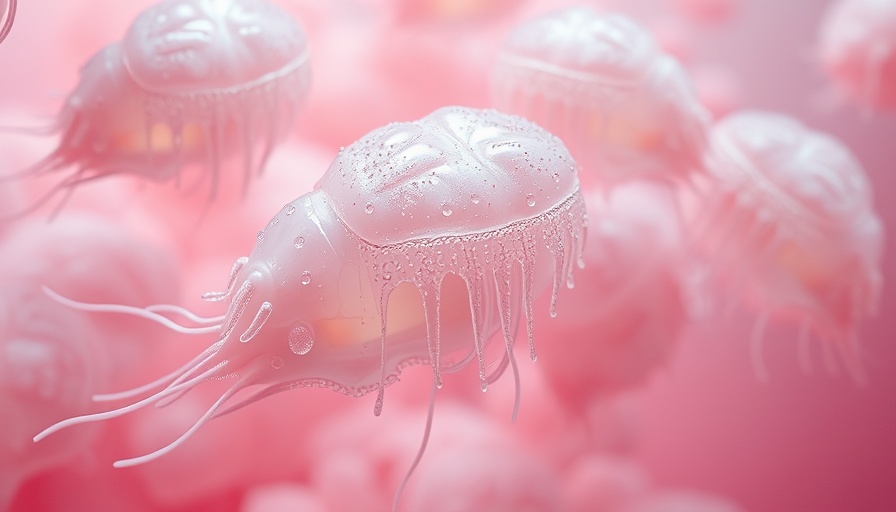
Understanding the Rare and Dangerous Brain-Eating Amoeba
Much like a ghost story that sends shivers down your spine, the brain-eating amoeba, or Naegleria fowleri, is a rare but terrifying organism that has the power to produce fatal infections. Recent news from South Carolina about a confirmed case has raised alarms, especially among senior citizens who are often more vulnerable to health risks. Yet, it's essential to understand what Naegleria fowleri truly is and what we can do to stay safe.
Beware of Summer Activities in Warm Water
As we enter the warmer months in Louisiana, many residents are eager to take a dip in lakes and rivers to beat the heat. However, it's crucial to remember that Naegleria fowleri thrives in warm freshwater environments. This organism is usually harmless when swallowed but can be deadly when water enters through the nose, making summer swimming a cause for concern.
A Close Look: Historical Context and Its Fatal Consequences
The Centers for Disease Control and Prevention (CDC) reports that Naegleria fowleri infections, although extremely rare with fewer than ten cases each year, have a grim outcome. Out of 164 known infections between 1962 and 2023, only four people survived. This statistic emphasizes the urgency of public awareness regarding safety measures.
Signs and Symptoms to Watch For
Understanding early symptoms is vital for timely action. Initial signs of infection may resemble those of more common illnesses, such as fever, headache, nausea, and vomiting. As these symptoms escalate rapidly, recognizing these early warning signs is crucial, especially for seniors who may misinterpret them as typical seasonal ailments.
The Unseen Risks: Tap Water Infections
Interestingly, Naegleria fowleri can also occasionally be found in tap water, which can pose an unseen risk, especially for vulnerable populations. While direct ingestion through the mouth is not fatal, any exposure through nasal passages remains life-threatening. It’s essential for senior citizens and their families to ensure that water sources are properly filtered, especially if they experience symptoms after recent water exposure.
Reassurance for You: Rare Cases and Precautions
Despite the alarming reports, it’s important to remember that infections from Naegleria fowleri are exceedingly rare. Maintaining good sanitation practices, avoiding swimming in warm freshwater bodies, and using nose clips can help mitigate risk. In addition, public health campaigns aim to educate communities about safe water practices, particularly during summer.
Getting Informed: Steps to Take
The importance of knowledge cannot be overstated. For seniors and caregivers, understanding Naegleria fowleri and how it spreads is the first step in preventing infection. Staying abreast of health updates from local health departments can ensure you and your loved ones remain informed about potential risks. Further, don’t hesitate to discuss any health concerns with your doctor.
Community and Family Safety: Everyone's Responsibility
Staying vigilant about unusual health threats is not just a personal task; it’s a collective responsibility. Engaging in conversations with family and community about water safety can foster a safer environment for everyone, especially the elderly who may not be aware of the potential dangers.
As you prepare for warmer days, consider taking proactive steps to ensure your safety and the safety of your loved ones. Staying informed, vigilant, and connected with your community can make all the difference. This summer, let’s prioritize health and well-being, ensuring that outdoor fun does not come at a dangerous price.
By understanding the risks and learning how to protect ourselves, we can enjoy a safe and happy summer. Embrace water activities this season, but always with caution and care. For more information on staying safe this summer, consider checking with local health departments and resources.
 Add Row
Add Row  Add
Add 



Write A Comment